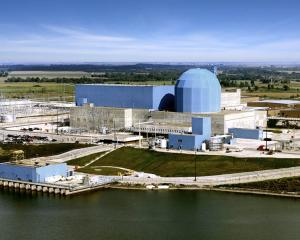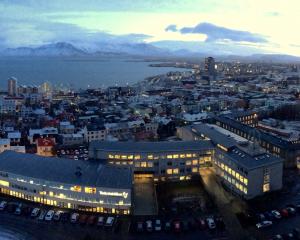There are churches of all shapes and sizes, but then there are also working churches, Peter Matheson writes.
Not all churches are museum pieces, icons of a past age, interesting, perhaps, for their stained glass windows and magnificent roof beams but not much else.
If still functional, then they are probably generators of homophobia and bizarre fundamentalisms. Would that sum up the view of the average Kiwi? Perhaps so.
My own experience, though, is different. Let me try to delineate how one particular church, to which I happen to belong, operates — what a "working" church looks like in practice.
It is only one of many similar churches but since their metaphorical doors remain sealed to many Dunedinites, this is an attempt to blast them open. Churches are complex organisms. In a sense their very existence is an ongoing miracle, because they are expensive to run, to heat, to clean, to staff, to maintain and unlike much of Europe they get not a cent from the state. They are wholly dependent on voluntary giving.
My church gets some additional income from carparking fees, etc, but basically that is peanuts. The days of businessmen with deep pockets running the show have long since gone.
So unless ordinary people, many of them retired folk or young couples, dig deep the place would fold tomorrow. So what explains this generosity?
I guess it’s because members find in the church something crucial that is absent elsewhere — we might call it the poetry of existence. That something varies from person to person. Being part of a caring community balks large for most. There is a strong network which looks after the vulnerable, but that’s only part of the story.
Community is about shared values and interests in our highly atomised society. As in a marae, it is about whakapapa and tradition, including a love of music and the quest for meaning and purpose in life. It finds expression in walking groups, discussion groups and dining together. There’s a choir, a team of organists and a children’s choir.
It remains a bit of a mystery, however, how all this coheres.
Much responsibility rests on the council which sets future directions and on a hard-working Deacons Court which looks after the practical side of things. In a society in which voluntary societies and sports bodies often struggle to survive, these volunteers really put in the hours, and more importantly, drive the innovations needed as the world changes around us.
I come from a long line of ministers, stretching back four generations, and am sharply aware of the difficult leadership role of minister or priest, sent into a community whose ethos has already been developing for generations. A "working" church does not pivot around its clergy, but they have an incredibly privileged role in life’s highs and lows.
They also have a special responsibility for liturgy and keeping the teaching authentic. My own church has had a strong link with the university since Otago was founded, providing a string of its chancellors and vice-chancellors. Hopefully it can help the uni these days to pay less attention to bean-counting and more to its role as the critical conscience of society.
To deploy a big word, the prophetic role of minister and congregations has certainly grown ever more important. This "working" church of mine, whether in its more formal morning services or its interactive evening gatherings, puts issues such as social justice, the Anthropocene Age, the growth of militarism, high on its agenda.
In the so-called Dark Ages, the monasteries encouraged an alternative vision of non-violence and community.
The role of today’s marginalised churches may not be so very different. The rumour of God which activates them points us beyond personal obsessions and quietly punctures the presentist bubble.
As long as this happens we will continue to merit the name: "working" churches.
- The Rev Dr Peter Matheson is emeritus professor at Knox Theological College in Dunedin.









